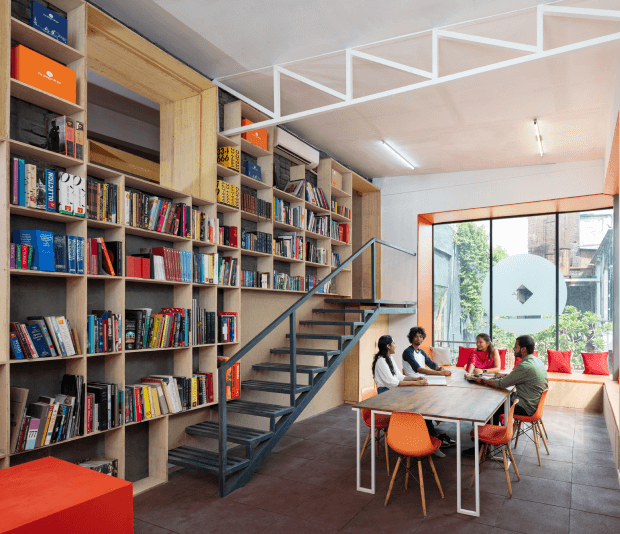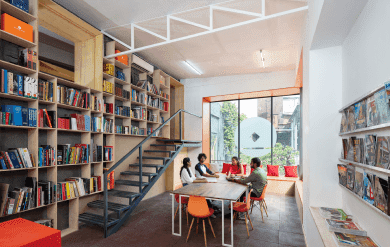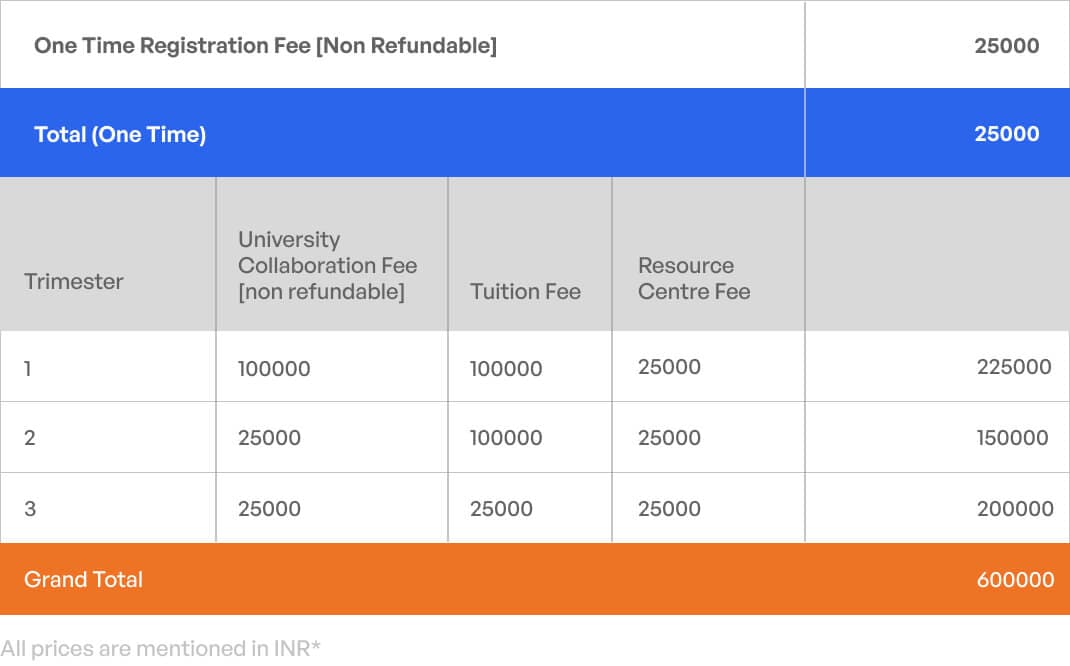
The classical way of approaching education is usually to create a learning environment within a bubble, where a student is allowed to grow without having to reckon with the realities of the world. Students are educated within silos and fail to comprehend the complexity of the design problems that face us and our surroundings.
The one year program is a practice-based Masters. Especially designed for self-driven lifelong learners. An ideal place for individuals who are aspiring to make a difference in the real world or
looking to realize a purpose.
With this approach, the institute becomes a vehicle for the learner to find their own place in the world, while maintaining a synergy with every journey being pursued. The journey ensues a dialogue
between the student and society, engendering long term change in the position of design in the Indian context.
The 1 yr Master’s is designed to create a positioning specific journey which helps a student articulate their place in the world. Looking at Place & Position as the dialectic of practice— Place being external to where I fit or what I can, while position being internal to who I am.
The overall journey helps one answer the question: “What kind of designer am I?”
The eco-system for Practice of Design comprises Studio Archohm and The Design Village Institute, their respective networks and associations. The physical proximity of the learning environments is leveraged and emphasized.
All Selected Bdes Applicants Will Be Considered For The Mdes Integrated Program.


The 1 yr Master’s is designed to create a positioning specific journey which helps a student articulate their place in the world. Looking at Place & Position as the dialectic of practice— Place being external to where I fit or what I can, while position being internal to who I am.
The eco-system for Practice of Design comprises Studio Archohm and The Design Village Institute, their respective networks and associations. The physical proximity of the learning environments is leveraged and emphasized.

The Masters is a 52 week program, spanning over 3 semesters and 60 credits.
The program is divided into three components:

FINANCIAL AID OFFICE
For funding options, founders' scholarships, financial and loan assistance please contact [email protected] Please note that funding assistance is limited and is solely based on the discretion of the Financial Aid Office and all the decisions made under their purview shall be final and binding in all.
MODE OF PAYMENT
| I. Beneficiary Name | The design village foundation |
| ii. Name of the bank | AXIS bank ltd |
| III. address | Nehru place, delhi-19 |
| IV. Account No | 914020025422810 |
| V. IFSC/NEFT | UTIB0000049 |
For other digital modes of payment, please get in touch with us.
FEE RULES
The Practice of Design has been conceived for designers looking to find their Place in the World and Position of the Self. The learning environment is a cohabitation of the atelier and institutional spaces within the same ecosystem. Academic coaches and industry consultants work in conjunction to bridge the gap between theory and practice. The aim is for each designer to find external affirmation and plausible vistas to launch their ideas through navigating the complexities of the real world.
The 2 year MDes course offered at TDV is a traditional masters program helping students to develop an expertise in a particular silo. The journey of 2 years is ideal for a non-designer to step into a design field, or for a designer to change tracks or strengthen their design foundation.
Whereas the 1 year Practice of Design, MDes Executive is designed for self driven designers who are looking to articulate their place in the world. It is not about learning design skills, but rather using those skills to navigate the real world. At the end of 1 year, the villager would have been through a self realization journey and be ready to negotiate a place and position for themselves.
As per the National Education Policy 2020, UGC has recognized the awarding of 1 year masters courses as well as 5 years UG + PG integrated UG + PG programmes.
The career prospects after the course would be dependent on independent learner journeys. Villagers would go on to manage design teams, get patents, be a design entrepreneurship, join academics, publish relevant work and be recognized for original research and design endeavours.